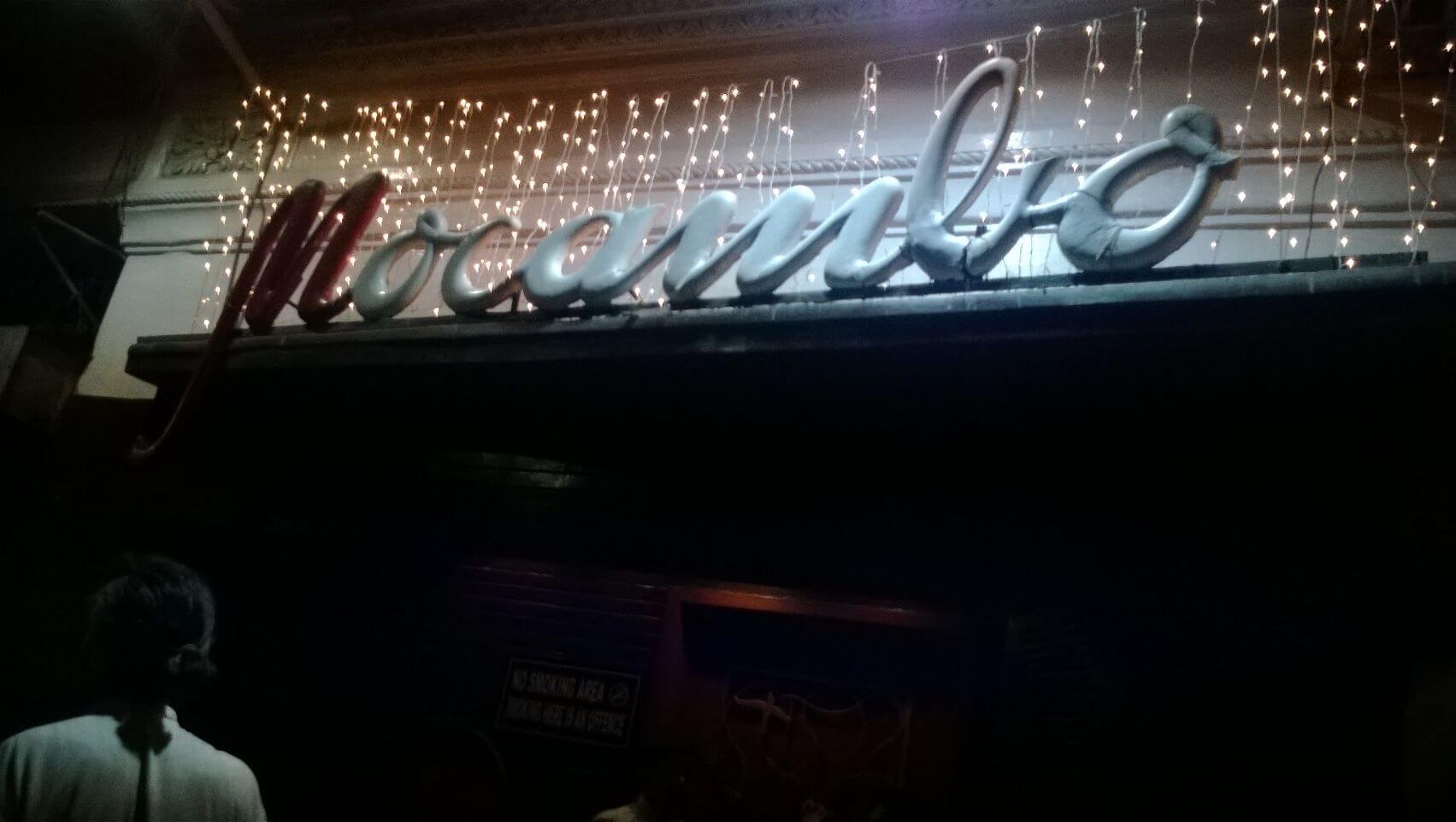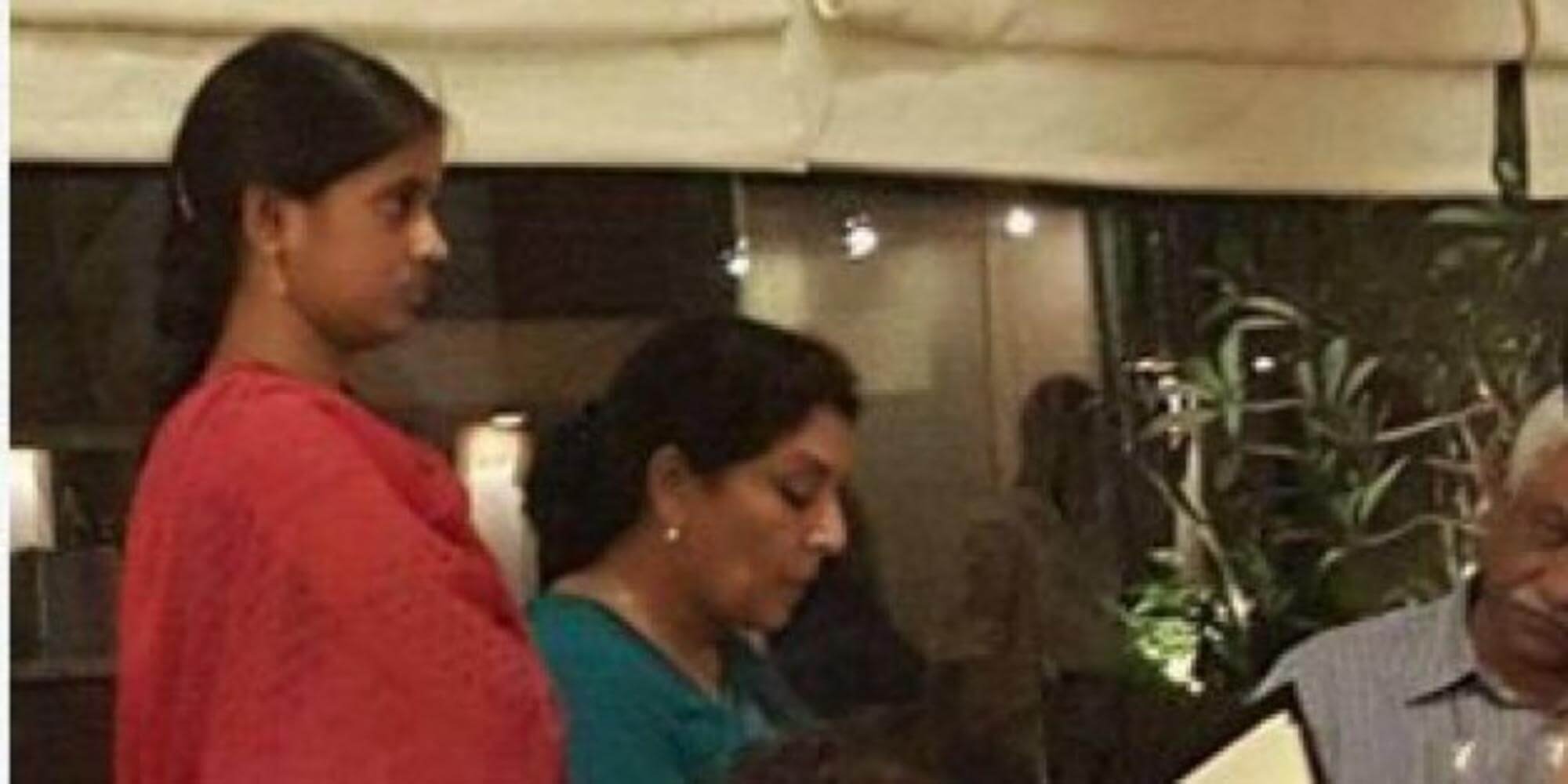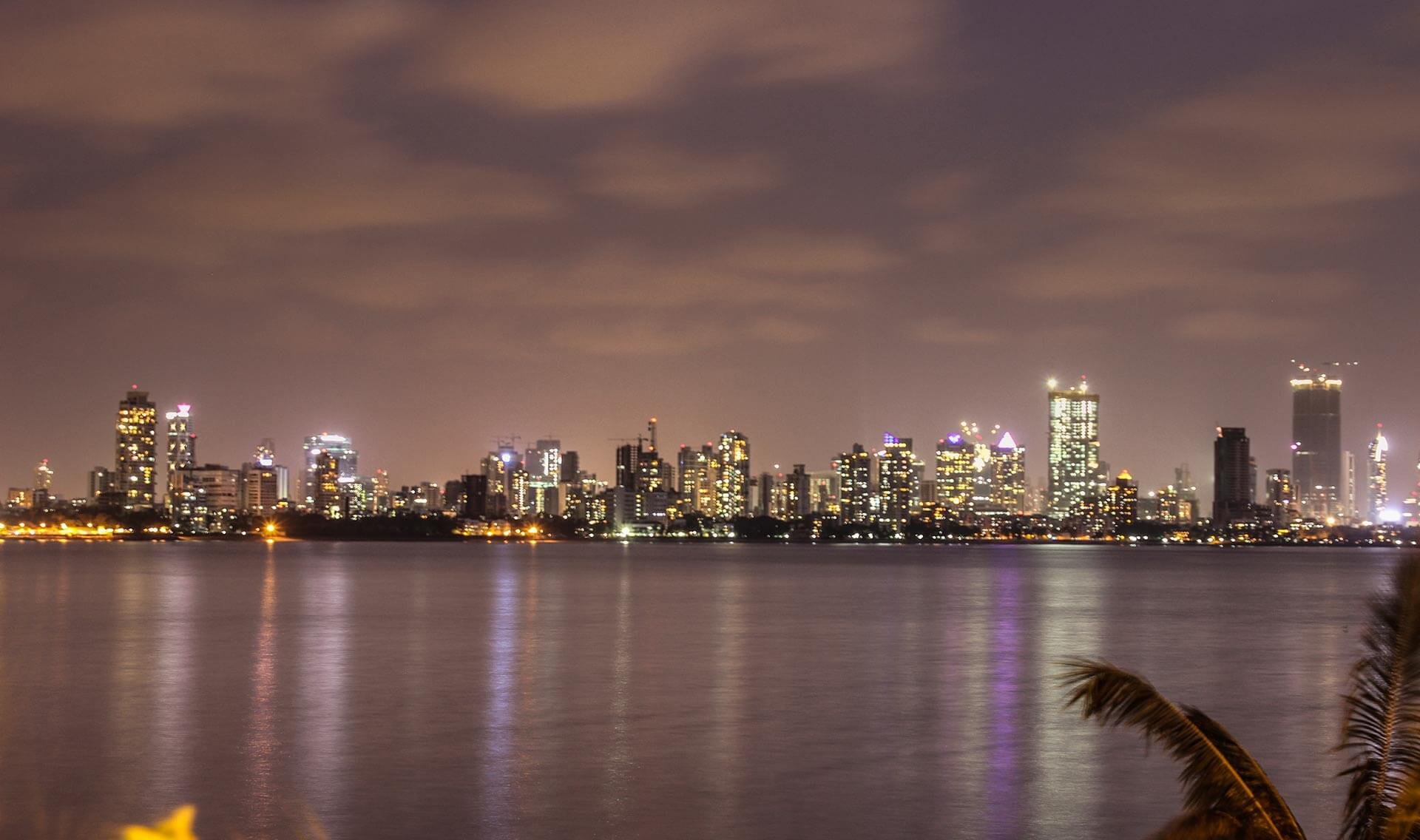Mocambo, the legendary Kolkata restaurant, famous for its Deviled Crab (spicy and regular), Baked Alaska and Whisky Sours, its red sofas, saloon/bordello lamps, featured in films like Kahaani, is battling the Great Internet Backlash. There’s a campaign to knock it off Zomato.
Its fall from grace happened when Dilashi Hemnani wanted to have a meal at the restaurant while visiting Kolkata. The problem was that she wanted her driver Manish to accompany her as well. The restaurant made her wait. Then they told her that her driver was not “properly dressed”. Then they told her he was “drunk”. Her angry post has gone viral since the incident with over 13k likes and 27k shares.

Since then, the restaurant has put out several excuses, each klunkier than the previous one.
They told ScoopWhoop, “We have allowed drivers and domestic helps before, but this guy wasn’t clean enough. He was wearing sandals and was dressed in an attire that was not appropriate”.
They told Huffington Post, “He was a driver. He looked dirty.”
They told Vagabomb, “He was having roadside jhalmuri, walking around grazing people. That is not acceptable. How could you have a roadsider coming into your restaurant?” Not sure what grazing people means, but even worse, Manish was “indecently dressed … just wearing one pant and shirt”.
Mocambo just served up some burra pegs of elitism, classism and snobbery. No wonder social media has exploded in anger.
Restaurateur Mihir Bijur spoke for many when he vowed, “I’m never eating at this restaurant ever. Shame on you Mocambo restaurant”.
Filmmaker Srijit Mukherjee tweeted, “He was dressed in one pant and one shirt… How does one dress in three pants and five shirts at the same time…”
His colleague, Kaushik Ganguly lamented, “MOCAMBO it was a very unlike Kolkata act if the incident is true. All I can suggest is an official apology”.
Food blogger Poorna Banerjee said it was “doubly shameful because we are in Kolkata, a liberal city with a soul.”

Except here’s the uncomfortable truth. It was not that “unlike Kolkata act” at all. The “liberal city with a soul” is not exempt from class bias and Mocambo is hardly the first incident, as shown here.
It does not happen more often because we all know the unwritten code and quietly abide by it. We go to Mocambo, the driver goes to the dhaba and all is well in the world. The manager probably thought the other customers would feel upset. And if we are honest enough to admit it, chances are they would. In the great mixing bowl of the city, caste and religion might be a non-issue. But class remains the big divider. And class bias is almost invariably the gatekeeper at the door separating Them, from People Like Us.
This is not to excuse Mocambo in the slightest. This is just to say public display of classism and elitism is hardly Mocambo’s problem alone. They were merely forced to be upfront about it.
Go to a mall and watched an upper middle class birthday party in progress, shrieking children digging into cake and pizza, wearing party hats and bursting balloons. Usually, it’s in the late afternoon. Usually, there’s a bunch of mothers chatting with each other and occasionally telling the kids to not shout so loudly. And more often than not, there’s an ayah standing behind the kids, making sure their plates are full, that no one is spilling soda on anyone else. The ayahs do not sit down with the others. Their job is to just stand there throughout the party, like invisible helpers.

The class divide is the backbone of our society. It keeps everything in place and, more importantly, lets everyone know their place. The Manish-es of the world instinctively know when they walk into a house whether they can sit on the sofa or not. On our television soaps, the good characters might not treat the cook or the maid badly. But they never share a cup of tea together either. They often have their own entrances in fancy buildings and their own “staff elevators”.
We create spaces to preserve that class divide, so we can socialise with our own class, insulated from the great less-washed masses. At Calcutta’s elite clubs, the ayahs and the drivers are not allowed in many places, and certainly not in most dining rooms. Most of us are perfectly OK with that. We consider it a privilege clubs enjoy. All those dress codes about closed shoes, formal pants, dinner jackets are meant to help keep the “riff-raff” out. The only time we protest those rules is when celebrities such as the painter Suvaprasanna or the musician Ananda Shankar find their kurta-pajama-chappals come up short.
Many of these clubs once discriminated in terms of race. But as Benjamin B Cohen writes in his book, In the Club, “(I)ntertwined with the issue of race was that of class… Within the world of clubs, particularly British clubs, individuals could be denied membership and admission based on their particular background – including class, or as CPH Masterman called it, their ‘status’.”
We are an unabashedly status-conscious society and what Mocambo was saying that night was no matter what Hemnani felt, her companion did not pass the status sniff test.
This does not let Mocambo off the hook. But it’s a little rich for the rest of us to pretend that old Mocambo is just one bad Baked Alaska in a liberal city with a soul. The manager at Mocambo was not just being classist, elitist, and snobbish. He was reflecting the classism, elitism and snobbery of his clientele.

















